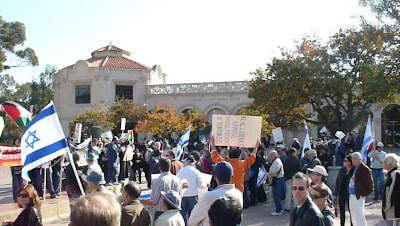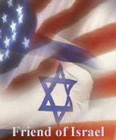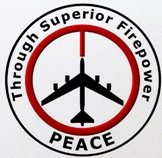As I have mentioned before, last Saturday my wife and I went to see the movie "Defiance". The movie is based on a true story told by Nechama Tec about 4 Bielski brothers who organized a Jewish partisan band in Nazi-occupied Western Byelorussia and saved 1200 Jews. This is the only kind of Holocaust movie that I like: the kind where Jews save themselves, have guns, fight back and defend themselves. The movie is very well made, and the acting is pretty good too. The reviews by regular movie-goers are almost universally good. People can relate to the story: people hunted like animals stand up and defend themselves. The professional critics, being the pretentious blowhards that they are, don't particularly like the movie and keep analyzing artistic merits of the story. But there are no artistic merits in this story, it is what it is. This is a docudrama, or, more properly, a reenactment of historical events. The script writer did not have to invent any clever plot lines, they were provided by life itself. However, the review linked to above is not the most insulting and idiotic. Yesterday my co-worker sent me a link to this Atlas Shrugs post, which links to a review written by someone named Tom Charity and published by CNN. Pamela quotes this lovely passage from the review:
"The timing is unfortunate. For a story that has gone neglected for the best part of 60 years, this is hardly the ideal week to be extolling heroic Jewish resistance fighters. Ari Folman's angst-laden nonfiction animated film, "Waltz With Bashir," is altogether more relevant."
This guy of course has a problem with the Jews in Israel defending themselves against Hamas murderers. This basically reveals the main problem the Left has with Israel. Besides the anti-Semitism prevalent on the Left, the leftists prefer Jews as quiet little victims silently marching into the gas chambers, so the Left can feel sorry for them afterwards. But as bad as the passage above is, the complete article is even worse. The term "pretentious blowhard" is, well, too charitable for Mr. Charity (pun intended). Mr. Charity writes his review with very little, if any, knowledge and understanding of the subject matter of the film. Well, I will take up an exercise in futility and attempt to enlighten Mr. Charity and his ilk.
One of the idiocies of this review that stands out is this:
In "Defiance" those words come with a thick, guttural European inflection (Hebrew is spoken as English, though characters also break into subtitled Russian and German on occasion). The speechifying is often clumsy and long-winded.
I would have forgiven Mr. Charity if he would have said "Yiddish is spoken as English". This is probably the way it was intended by the director anyway. But Hebrew? This guy is just an ignorant idiot. No, I am not being charitable any more. Apart from a rabbi conducting a service, Hebrew was never spoken by Jews in Byelorussia. The language spoken by those involved in the story was probably a mixture of Russian, Byelorussian, Polish and Yiddish, with Russian predominating among the city dwellers from the East and Polish among those from the West. Any commands and speeches would probably be given in Russian. How do I know this? Well, look at my background! Yes, Odessa is not in Byelorussia, but I know enough people from there too. And there are and were enough similarities in conditions in Odessa and Byelorussia for me to know what language was spoken by the real characters in this story. And by the way, there was no German spoken by the Jews in the movie.
Mr. Charity laments Zus' decision to join the Soviet partisans and take the fight to the Nazis. Hiding in some hole must be more appealing for Mr. Charity. He does not think that the Russians were true friends of Zus. It would help if Mr. Charity would have read Nechama Tec's book on which the movie is based. Victor Panchenko, the Russian commander, is not shown as a villain in the movie. Indeed, he was not. Unlike many Russian partisans, Panchenko accepted Jewish able-bodied men into his group. And once he esteblished contact with the Belski brothers, he sent the non-fighters their way. If Mr. Charity would have read the book, he would know that Panchenko was very helpful to the Belski brothers. He helped the Jewish partisans establish contact with the Soviet High Command, which was necessary for treating the wounded and getting supplies. Jewish fighters were participating in missions together with the Russians, missions ordered by the Soviet Command. And Panchenko made use of Jewish camp as a base, using skilled laborers weapons maintenance and repair and medical professionals for treating lightly wounded. This actually alluded to in the movie, when the newcomers to the camp are asked what they can do. And, by the way, Panchenko punished anti-Semites. While Zus and some of his comrades did come back to the Belski camp, some other Jewish fighters stayed with Panchenko because they wanted to fight the Germans more actively as members of a more mobile Panchenko group. Here is one more news flash for Mr. Charity: wanting to take the fight to the Nazis is a good thing.
Here is another lovely passage by Mr. Charity:
The movie is full of mud and muck, yet somehow Zwick sanitizes the things that matter most. In the most challenging scene, just as Tuvia turns a blind eye as his enraged fellow Jews beat a German prisoner to death, Zwick consistently pulls back from anything that might be too unpleasant or tasteless.
Mr. Ignoramus conveniently does not notice clearly visible SS insignia under the "poor" German's camouflage coat. The fact that he was SS means that he was likely a member of one of the Einsatzgruppen, a special SS unit whose only purpose in life was to murder Jews. So, what would Mr. Charity have Tuvia Belski do, shoot his fellow Jews in order to save an SS-man? And what would partisans do with a POW? Start a POW camp in the woods? The circumstances were such that the German had to be killed anyway. Or should they let him go, so that he would come back with his Einsatzkommando? I personally would have preferred that the Nazi were thoroughly interrogated and then disposed of cleanly with a bullet to the back of his head. But once the mob started beating on him there was no stopping them without shooting one of long suffering people whose loved ones were perhaps murdered by that SS-man. It obviously was not worth it. The ignorance and lack of historical perspective displayed by Tom Charity is staggering. And he uses this episode to take another anti-Semitic potshot at those "murderous" Jews. By the way, why is this scene more challenging than, let's say, the scene where Tuvia shoots Arkady, the man who challenged his command authority? The man was a jerk, but at least he was on our side. He was one of the Jews initially saved by the Belskis. Could it be that Mr. Charity feels more sorry for the Nazi than for the Jew? "His [Edward Zwick's - Eric-Odessit] heroes remain fundamentally unsullied," Mr. Charity laments. He clearly would prefer to sully them.
There is also this idiotic passage:
Zwick's Hollywood liberal credentials are not in doubt, but his films have a surprisingly gung-ho undercurrent (they include such martial adventures as "The Last Samurai," "Glory," "The Siege," "Legends of the Fall" and "Courage Under Fire").
Tom clearly does not like plots where good guys are fighting the bad guys. He must subscribe to the notion that "War never solves anything". Well, I have to remind him that war did stop slavery, Nazism and Communism. So, it did solve something. And who cares about "Zwick's Hollywood liberal credentials"? He probably does lean Left, but it does not matter. He made a good movie, movie I can relate to. Older generation of my family lived this story. I know people who were participants in similar stories. And he made a movie about Holocaust where the Jews take up guns, shoot back and defend themselves, killing the Nazis. That's better than all the "Schindler's Lists" and "Pianists" combined.
Powered by Qumana









































